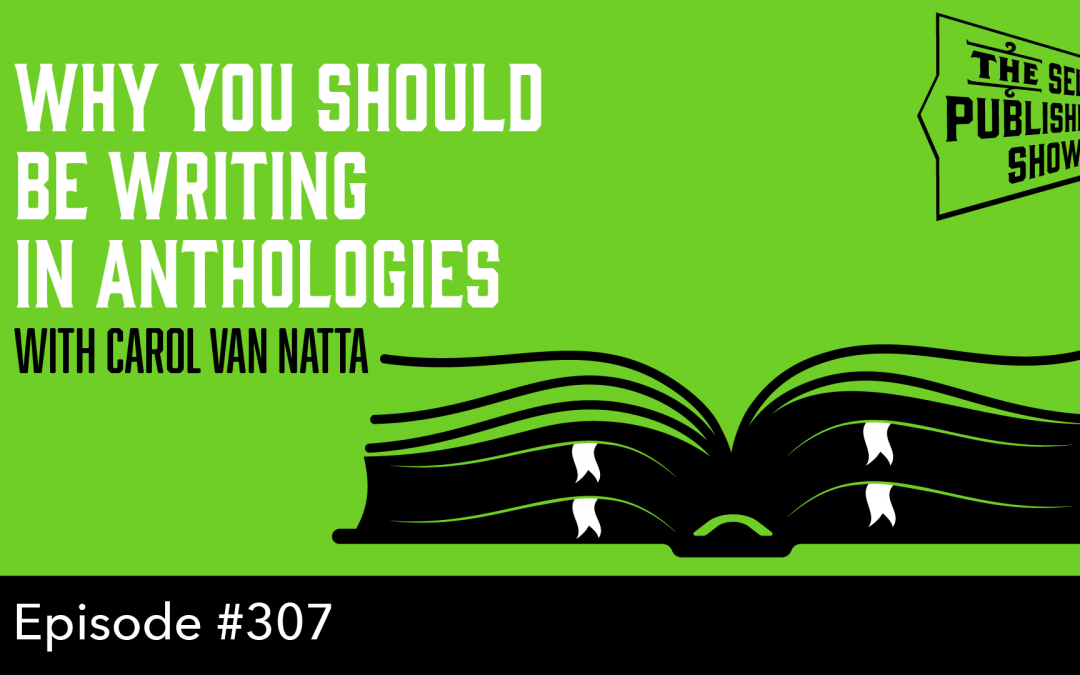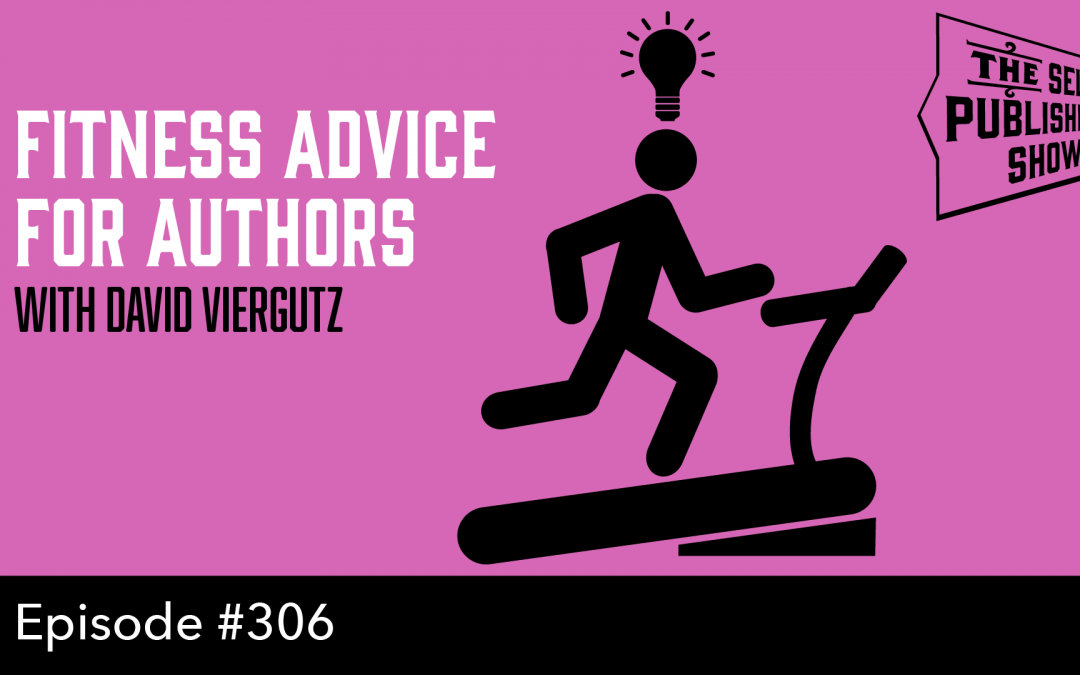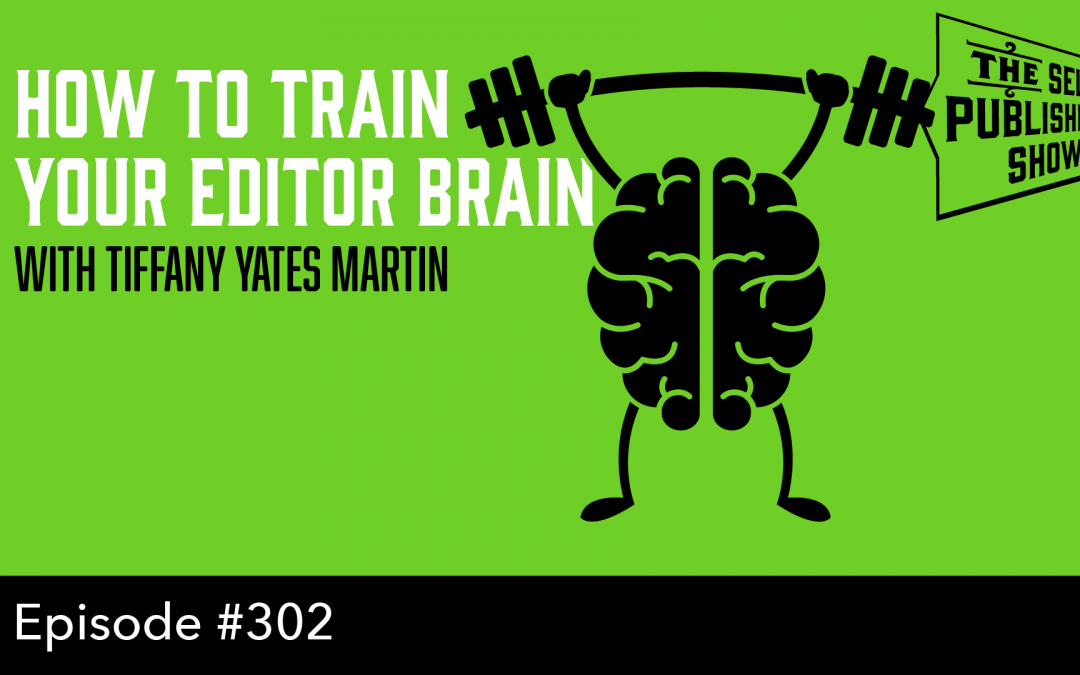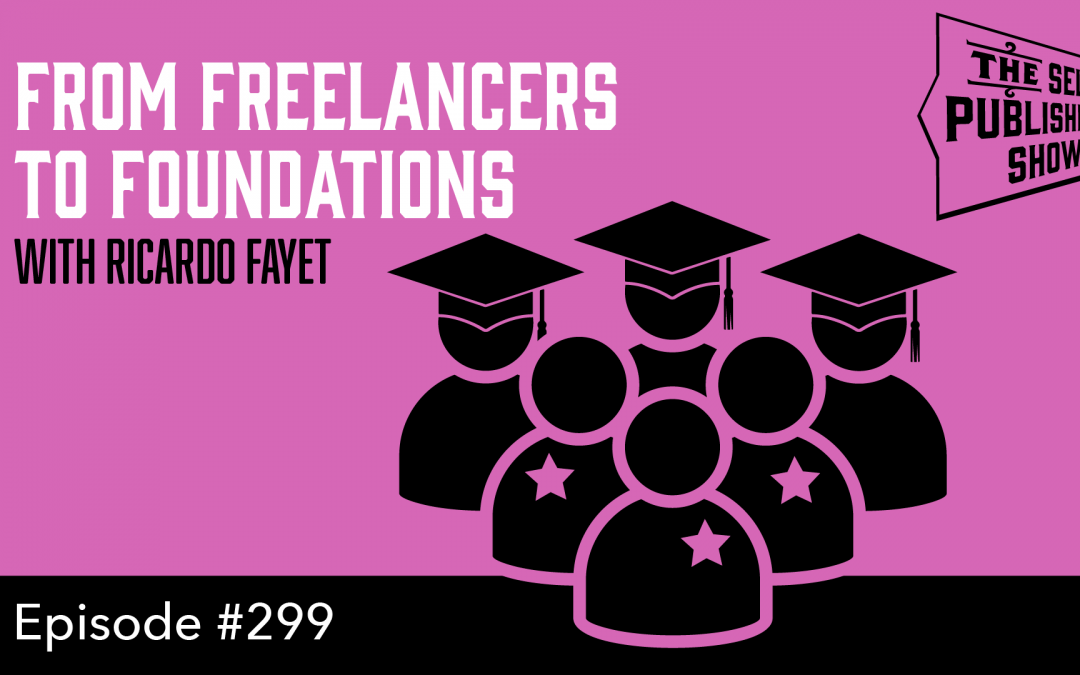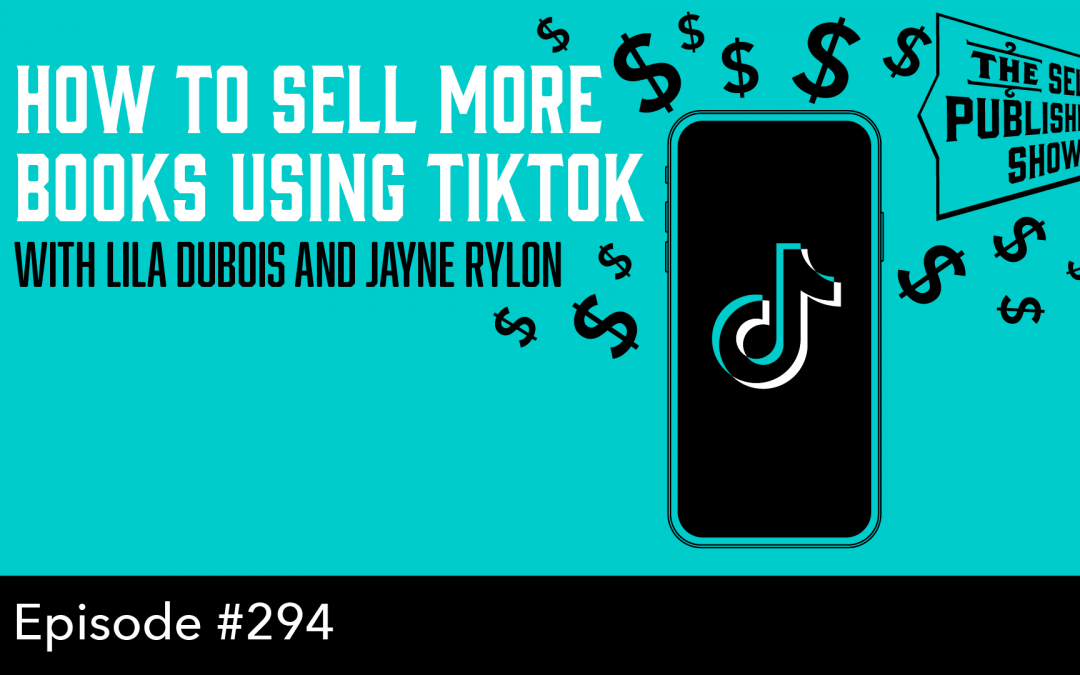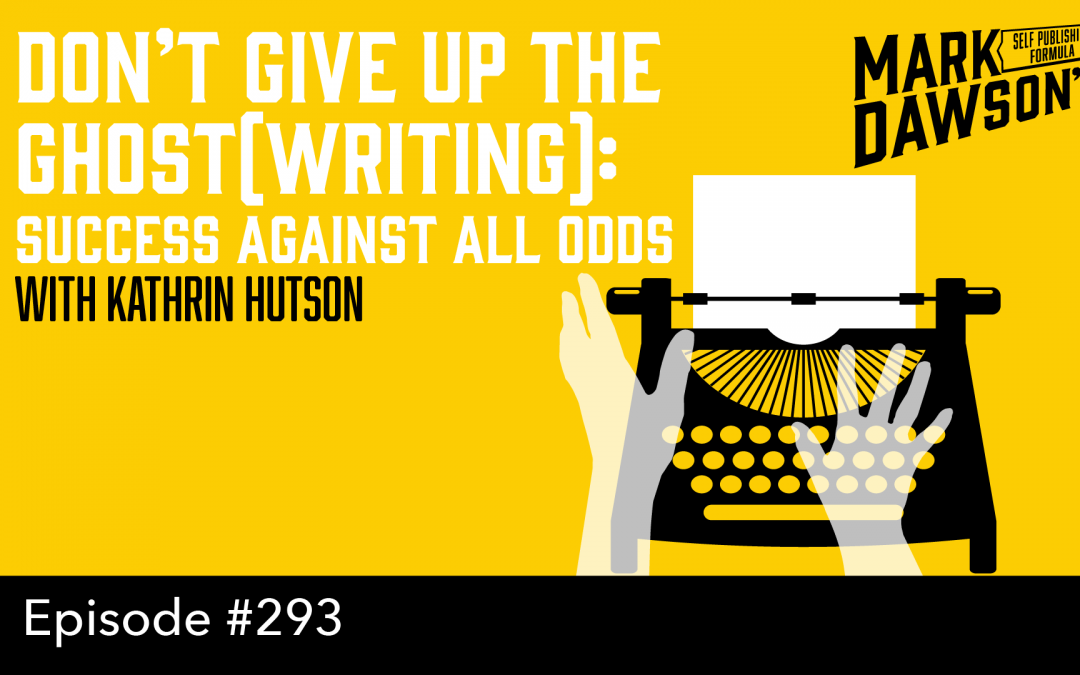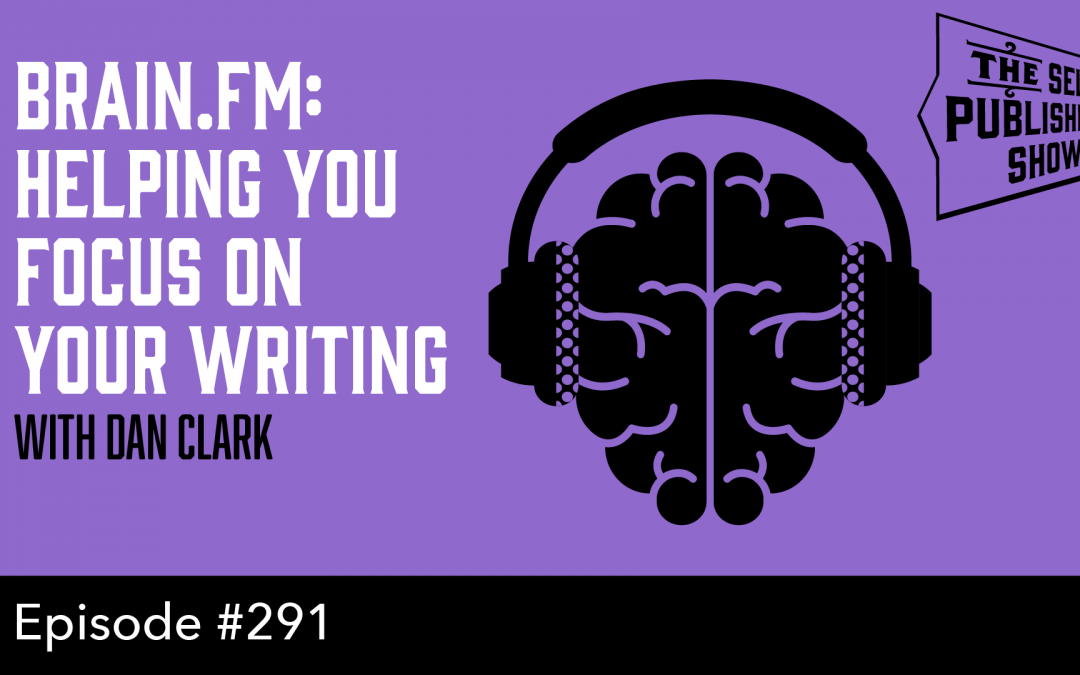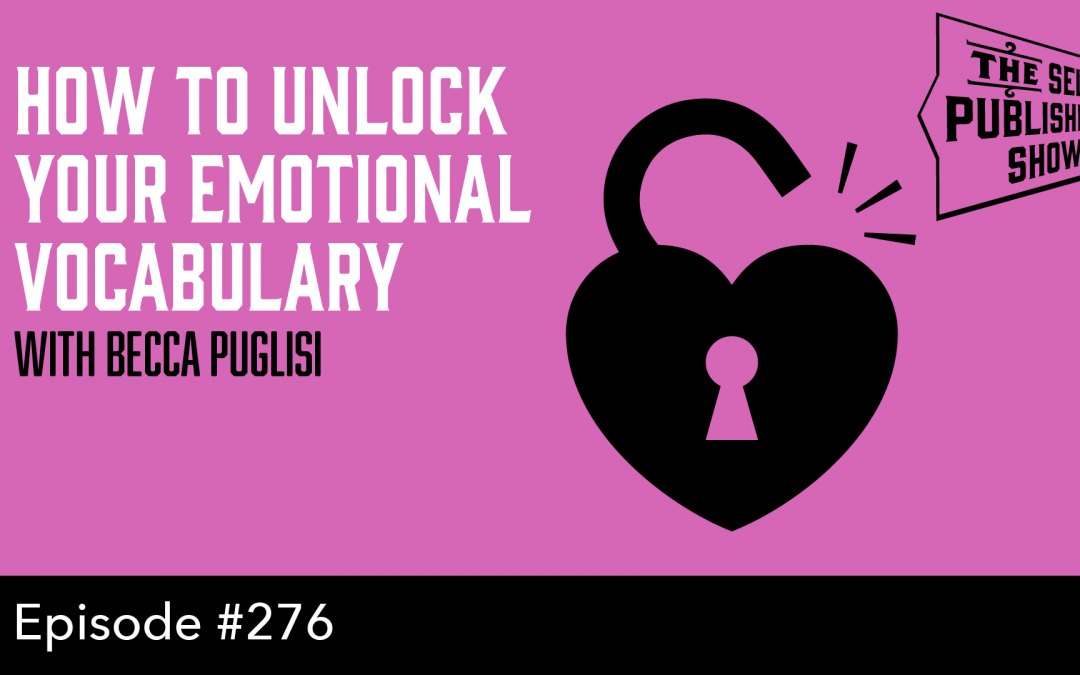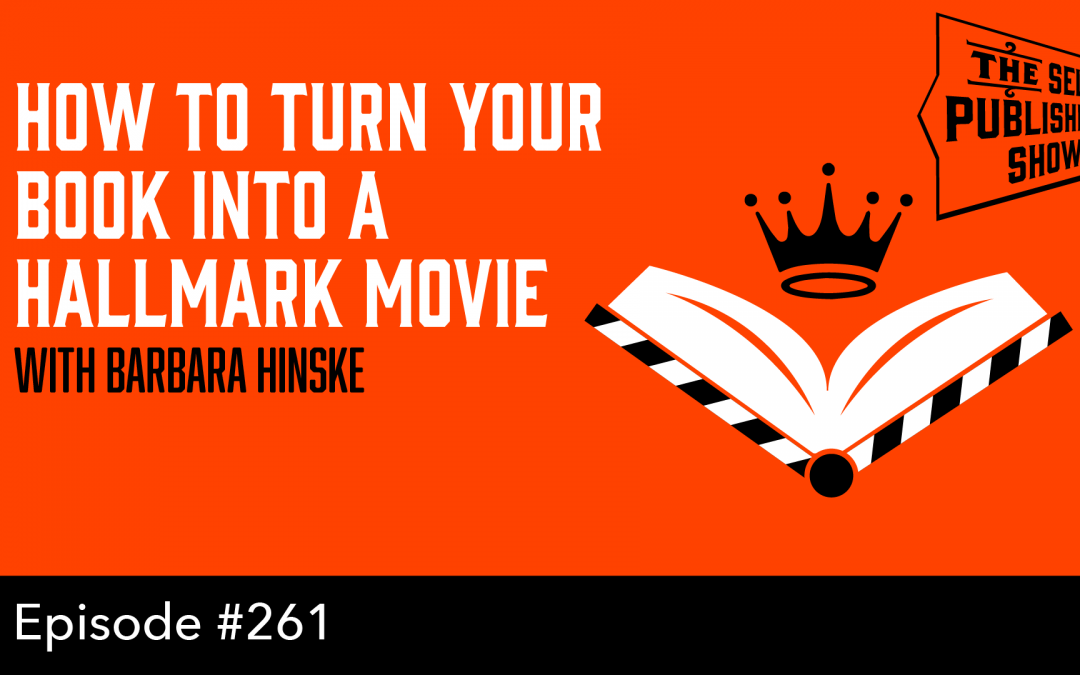Short stories are usually harder to sell, yet many authors are writing together in anthologies. Why?
indie author
SPS-306: Fitness Advice for Authors – with David Viergutz
Writing books can be quite a static job. Here’s how (and why) you should keep physically active.
SPS-305: How to Build a Believable World – with Angeline Trevena
It’s important to craft a world readers can lose themselves in. Here’s how!
SPS-304: Introducing the Findaway Voices Marketplace – with Will Dages
Tune in to discover how to sell audiobooks through every major distributor worldwide.
SPS-303: How Stories Help Us Process Trauma – with David Chrisinger
Stories are what the human mind uses to understand the world – both the good and the bad. David Chrissinger explains.
SPS-302: How to Train Your Editor Brain – with Tiffany Yates Martin
Every manuscript needs to go through editing. The question is, what kind does yours need?
SPS-301: Literary Fiction: What Is It? – with Roz Morris
Literary Fiction often stands apart from genre fiction… but what actually defines it?
SPS-299: Reedsy – From Freelancers to Foundations – with Ricardo Fayet
Ricardo Fayet co-founded Reedsy, an online marketplace offering every service an indie author could ever need. But did you know they also support the SPF Foundation?
SPS-298: Atticus: the All-Purpose Tool for Indie Authors – with Dave Chesson
Fed up of using half a dozen different tools to produce a book? Atticus might be the answer.
SPS-297: Give Your Readers What They Want – with Melanie Harlow
What authors want and what readers want aren’t always the same – the importance of balancing art with commerce.
SPS-296: How to Write a Bestseller… for Children – with Suzy K. Quinn
Suzy has written multiple bestselling novels and even presented an SPF course about maximising a book’s chance of success. Now she’s turning her hand to children’s books.
SPS-295: Discovery Writing: Telling a Story Back-to-Front – with Patricia McLinn
How to write a successful novel using the discovery (or ‘pantsing’) method.
SPS-294: How to Sell More Books Using TikTok – with Lila Dubois and Jayne Rylon
It’s one of the most popular social media platforms on the planet. So how can authors use it to their advantage?
SPS-293: Don’t Give Up the Ghost(writing): Success Against All Odds – with Kathrin Hutson
Addiction almost led to Kathrin Hutson giving up her dream of becoming an author; now she’s a ghostwriting powerhouse penning books for the biggest publishers.
SPS-292: The SPF Foundation and the Dartmoor Detective – with Mikey Campling
Mikey Campling loves writing whodunnits, but it’s no mystery as to which courses contributed to his success.
SPS-291: Brain.fm: Helping You Focus on Your Writing – with Dan Clark
Plenty of us struggle to get in the flow as often as we’d like – Brain.fm might just be the answer.
SPS-289: Why a NYT Bestseller Switched From Trad to Indie – with Gail Carriger
She was a New York Times bestseller with successful trad deals. So why did Gail Carriger make to switch to full-indie?
SPS-276: How to Unlock Your Emotional Vocabulary – with Becca Puglisi
Flesh out your characters and shake up your writing with the Emotion Thesaurus.
SPS-261: How to Turn Your Book into a Hallmark Movie – with Barbara Hinske
Ex-attorney Barbara Hinske on how she came to writing for a living and her personal experience of the book-to-movie process.
SPS-251: From Rock Star to Writer: Kickstarting a Comic Book – with Vinnie Fiorello
Vincent Fiorello is no stranger to art and creativity. In this interview he shares with James why he decided to crowdfund his latest project – a comic book with accompanying music in the form of a vinyl record.
Show Notes
- Vincent’s approach to entrepreneurship, whether it be via music or comic books
- On combining music and comics
- How comic production works with multiple artists
- How crowdfunding has the advantage of creating a fan base
- How the financial side of crowdfunding works
- On writing a short story a day for a month in 2019
- The question of who we would be without creativity
- An update on James’ progress with his book
Resources mentioned in this episode:
PATREON: Self Publishing Formula Show’s Patreon page
COURSE: How to Revise Your Book is now open for enrolment
MERCH: Are you a ligneous beetle or a yawning hippopotamus? Get your SPF hoodies and t-shirts in the brand new SPF Store.
EPISODE TRANSCRIPT:
SPS-307: Why You Should be Writing in Anthologies - with Carol Van Natta
Speaker 1: On this edition of The Self-Publishing Show...
Carol Van Natta: The reason to get involved in an anthology is that you particularly, if everybody agrees to play along and market, you expand your marketing reach by however many people are in that anthology.
Speaker 1: Publishing is changing. No more gatekeepers, no more barriers, no one standing between you and your readers. Do you want to make a living from your writing?
Join indie bestseller, Mark Dawson, and first time author, James Blatch, as they shine a light on the secrets of self-publishing success. This is The Self-Publishing Show. There's never been a better time to be a writer.
James Blatch: Yes, hello. It is Friday. So it's The Self-Publishing Show with me, James Blatch.
Mark Dawson: And me, Mark Dawson, in Las Vegas again.
James Blatch: Fabulous Las Vegas, Mark.
Mark Dawson: Fabulous Las Vegas, indeed.
James Blatch: We're just off the strip. We've come here to this quite cool little place. I think it's called the LINQ or something like that.
Mark Dawson: The LINQ, it is, yeah.
James Blatch: The LINQ.
Mark Dawson: So behind us, behind John is the High Roller. So that's a very clever name for a very large Ferris whee that we've just been on. We were going to record the wrap on the Ferris wheel, and we decided that we didn't want to get in trouble.
James Blatch: No.
Mark Dawson: So we didn't do that.
James Blatch: Or embarrass ourselves in front of other people. Well, we did go on the High Roller at just the right time. It went from day to night when Las Vegas wakes up, and this is the area around 20Books Vegas, the conference, because that's held in Bally's, which is, as I learned yesterday night, someone gave me a history lesson on Vegas, it's the old MGM Grand owned by Caesar's Palace and Caesar's Group now, and it's much larger venue than we've had previously.
It's quite a cool little area this. I mean, the High Roller, you'll see some of the pictures we'll give to John to put over this, if you're watching this on YouTube, there's is an incredible view of this town, and it's a den of inequity. It's a place of vice, but it's also, I think, a little bit more family orientated than it used to be, a bit more theme parky, a bit more fun than perhaps it was maybe in the nineties when I first came here, and I think it's a pretty good place to have a publisher's conference, a writer's conference.
Mark Dawson: Absolutely. Yeah. Very good. If we look overhead in a minute, there'll be some people firing down a zip line quite fast.
James Blatch: Yeah. John's job whilst we're talking is to pan up in time. We'll have to shout, John.
Mark Dawson: Well, we won't see will we?
James Blatch: Well...
Mark Dawson: Tom can keep an eye on it, and Tom can make a noise, and John can pan up and we see what we can see.
James Blatch: Can you remember the name of our Patreon supporter?
Mark Dawson: Oh, no, I can't. You have to waffle for a moment.
James Blatch: I'm going to waffle for a moment.
Mark Dawson: Just remember though, James, that we have most of our listeners. Our listeners not...
James Blatch: Yes. Well, I think on these particular episodes, it's not its worst.
Mark Dawson: You're going to fail, James. You're going to fail.
James Blatch: Having a look on YouTube To see a little bit of...
Mark Dawson: No dead air. Dead air is a crime.
James Blatch: Shut up. I see a little bit of fabulous Las Vegas. Yeah. I suppose I could tell you about the conference. So Mark and I both did sessions.
Mark Dawson: Got it.
James Blatch: And as I mentioned last week, I did a session on nonfiction using books from nonfiction, and writing a nonfiction book.
Mark Dawson: There they go.
James Blatch: Missed it. Too late.
Mark Dawson: Tom got it.
James Blatch: Okay. Let's do our Patreon supporter, and then we can introduce our interviewee.
Mark Dawson: Yes. Our Patreon supporter is Pam McCutcheon from CO, USA, so Colorado.
James Blatch: Colorado.
Mark Dawson: So thank you very much, Pam.
James Blatch: Thank you, Pam, and hasn't it been a pleasure, Mark, having people walk up to us over the last few days, and have a chat, sometimes ask for selfies?
Mark Dawson: Yes. I told you last night, it's very weird that people still do that, but it is very flattering. So it's nice, and you are getting in there as well.
James Blatch: I am. There was at one point someone said to me, "Your queue was bigger than Mark Dawson's." I think it was only a brief moment. You were probably getting through people quicker than I was.
Mark Dawson: Yes, probably.
James Blatch: There you go.
Mark Dawson: We mentioned last week that you had your book signing. We did, didn't we?
James Blatch: Yeah. You mentioned my book signing.
Mark Dawson: Yes, we certainly did mention that.
James Blatch: Okay, look, let's move on to our interview today. So that's with Carol Van Natta. It is about writing and anthologies, and it's a bit of useful stuff, but not just specific to our anthologies. So it's a good interview for writers generally, but very interesting.
I had a lot of questions about how this works, royalties, and copyrights, and all the rest of it. It was very, very interesting to me how it does get put together very often with anthologies. So let's hear from Carol.
Carol Van Natta, because I feel like I should say, because of my Southern English accent.
Carol Van Natta: That's fine. You may say that.
James Blatch: Van Natta I think.
Carol Van Natta: And I will answer to it and not be offended.
James Blatch: There you go. Well, I might stick with Carol, if that's all right. Well, thank you very much at least for joining us, Carol.
Carol Van Natta: Yes, Carol is really very easy.
James Blatch: Yeah, it's a lot easier. Thank you for joining us on the Self Publishing Show, looking forward to having a chat with you today. We're going to talk a little bit about anthologies. So an area I know almost nothing about. So it'll be an interesting experience for me to talk about that, and learn about it, and hopefully for our audience as well, but let us start with a bit about you.
Carol Van Natta: Okay.
James Blatch: Do you want to give us the skinny of who you are, and a bit about your writing career, Carol?
Carol Van Natta: I'm a USA Today best selling author of science fiction and fantasy. I have two series out currently, a space opera romance series that's, oh, got about seven or eight books in it. Some are short, some are long, and it's all about rebellion. That's the big damn story arc is rebellion, but each individual story is a complete story, and I add romance in it, because anybody who's ever lived through rebellion times knows that that's not really a very fun time to be in. So I purposefully add romance for those to give you a kind of a hopeful ending, and maybe want to read the next one, as opposed to go and, I don't know, drink heavily after reading the end of the book.
James Blatch: Sounds reasonable.
Carol Van Natta: And then I write a paranormal romance series as well.
James Blatch: Okay. And you're self-published.
Have you always been self-published?
Carol Van Natta: Yes, I have. I co-wrote a very silly science fiction book with an author friend of mine in the late eighties, and we tried to get it published traditionally, and they said, "Ooh, not enough sex and violence in there."
James Blatch: Right.
Carol Van Natta: So we gave it up and said, "Ah, well, it was a nice idea." And then along about 2010, Amazon had come out with self-publishing, and we said, "We know what we can do with our book." So we self-published that, and then in about 2014, I was looking, I was trying to decide. Eh, should I go trad or independent, and I went to a writer's conference where a panel, somebody else, thank God, not me said, "I'm writing a science fiction romance. Would you guys be interested?" And the look on the panel, I mean, they were just dismissive of it, and so snotty. I was like, "Oh, yeah. Trad isn't for me."
James Blatch: Right. Yes.
Carol Van Natta: So I am self-published.
James Blatch: Good. Well, we're very pleased. Now, let's talk about space opera romance, or romantic science fiction.
Carol Van Natta: Sure.
James Blatch: Because I think that is an interesting area. I mean, the first thing I should say is that perhaps the most famous space opera that comes to mind when and anyone talks about it is, of course, Star Wars. And I was very much in love with Princess Leia. She was my first love in my life, and it was a very real visceral love. She unfortunately was never fully aware of it. Although we did meet once, and I explained to her that I was in love with her, and she said, "That's fine, hun." Anyway, that's just to part that aside, part that aside.
Carol Van Natta: I should imagine that Carrie had quite a number of people tell her that over the years.
James Blatch: Yes.
Carol Van Natta: And she had to come up with something that was reasonably polite.
James Blatch: Yeah. I almost certainly wasn't the only person that day who told her that they were in love with Leia. I do remember actually one of her anecdotes on a chat show is that one man said to her, "Look, when I was 14, I used to think of you all the time. In fact, sometimes I thought about you three or four times a day," and then only Carrie Fisher could tell that story, and just leave that hanging in the air, and she was like "That's..."
Carol Van Natta: Yes.
James Blatch: Anyway, lovely Carrie Fisher.
Space opera is I think good vehicle for romance, but it's I think not something that comes to people's mind straight away, the idea of romance in science fiction and space opera.
Carol Van Natta: I think so. Space opera, really the term is for those science fiction stories that are less about the big idea, and the concept, and stuff like that, and more about having adventures all across the galaxy, and having relationships, and changing new things to learn, and new people to meet, or new aliens, or exploration, or something like that, and not so much about what is the nature of mankind and all those things.
The term was coined rather, by a critic in I think it was late forties, early fifties, who said, "You are getting all that mundane stuff in my precious science fiction. All you're doing is writing soap opera in space. It's just space opera."
James Blatch: Ah.
Carol Van Natta: The people who were writing it said, "Yeah, what a great idea." The critic never got over this. He was really incensed that, "No, damn it. That was in insult."
James Blatch: Yeah.
Carol Van Natta: But people ran with it, and so space opera, you consider Star Wars, although that's maybe a little space fantasy stuff too, because they never quite explained the science behind it. Whereas Star Trek, Firefly, I could call those space opera.
James Blatch: Yeah.
Carol Van Natta: So I just add the romance part so people understand. Romance has certain rules that romance readers like to see. So it has to have the happy ending. It has to have a happy forever after, or happy for now, and it has to have the story of the relationship, and ideally, there's no cheating and other things like that. You can break the rules, but you'll start getting nasty reviews from people who said, "I thought you said this was a romance."
James Blatch: You have to obey the tropes, the expectation.
Carol Van Natta: Yeah. You have to expect if you call it a romance, readers have a certain expectation, and you have to meet that, or you will get the nasty reviews.
James Blatch: Yeah.
Carol Van Natta: So if you kill off one of your lovers in the end, call it romantic elements, something like that, but don't call it a romance, or one star reviews start stacking up. So I just added the romance part because not all space opera has the standard romance. They'll have romances. They'll have people who are falling in love, and then falling out of love, and then dying, and then cheating, and then all that stuff, which is fine, and I have no problem with it. It's just what I'm writing is romance, and I want to signal that to the people who want it, who want that.
James Blatch: Are your readers primarily romance readers, would you say, or science fiction?
Carol Van Natta: I'm going to say that they're probably 60/40 on that, because romance is not the primary motivation for the story, or it's not even 50%. It's more like say 60% is the science fiction, and the idea, and the world building, and the adventure, and the mystery, and all that stuff, and maybe 40% is the romance part. In my paranormal romance series, that's a lot more like 50/50, because those people really do expect the romance to be a part of that, and sex on the page and all those things.
James Blatch: Is there any sex in space?
Carol Van Natta: I'm sure that there's plenty of sex in space, and I tend to write closed door in my space opera series, just because I'm not trying to compete with the people who make serious bank over Kidnapped by the Alien Commander or stuff like that.
James Blatch: Right.
Carol Van Natta: And absolutely people should write what they want to write, and readers should be able to read what they want to read. That's just not where I want to go with that.
James Blatch: Yeah. Behind the Star Trek closed door, that door that...
Carol Van Natta: Yes.
James Blatch: Two stage hands either side backstage pushing them closed, of course. I'm trying to think of romantic science fiction, and actually, almost every science fiction I can think of has romantic elements in it, which is really interesting. Suddenly now I'm thinking about it. I mean, even Star Wars, the whole at the beginning it was slightly creepily as it turned out, Luke and Leia, but actually really it was Han and Leia, and that was kind of old style Western, quite gruff enigmatic romance, which is quite nice and has lived long in people's minds.
Carol Van Natta: Yes.
James Blatch: I'm also thinking much more frivolously, but actually, I do think it was very beautifully romantic right at the end. It was Futurama, and Leela and Fry. I don't know if you ever watched that, but they sort of grow old together at the end, and that's science fiction as well. And Buck Rogers, he had a more of I suppose a kind of love interest sidekick rather than the romance.
Carol Van Natta: Yeah.
James Blatch: I guess that's something you do try to avoid. It's not just a sidekick, it's an actual blossoming romance.
Carol Van Natta: Well, and the advantage of writing as opposed to a TV show that the executives want you to renew for yet the seventh year, and you're like, "Oh my god. What do we do with these characters now," is that you can plot out your story arc and say, "I'm going to write seven books, and that's what it shall be." Of course, if you're like me and my muse, I think I'm writing five books, and I'm already I know that I've got 10 in this series, and there will be more.
James Blatch: And are you writing the paranormal and the sci-fi romance at the same time, both series alive and being added to, or have you moved from one to the other?
Carol Van Natta: I usually flip from one to the other. I have tried that in the past, and I become schizophrenic, and this is really not a good thing, and my cats get very confused.
James Blatch: I think I heard one of your cats there, which should just explain what that noise was.
Carol Van Natta: Yes you did.
James Blatch: It may have had something in its throat, but it's a very catlike noise that we hear in our house quite a lot.
Carol Van Natta: Yes. I'm talking you see, but not to him.
James Blatch: Oh, I see.
Carol Van Natta: And so he's like, "Yes, you wanted... Oh, one of the those."
James Blatch: Yeah. I see. Well, we don't want to upset the cat too much. Okay. Well, look, you've established yourself in this area, and it's great. You seem to understand the genres very clearly, and I think when you're writing in potentially cross genres, that's something you have to be really clear about, right?
Because it's very easy, as you alluded to earlier, to upset one of your audience.
Carol Van Natta: Yeah. And if you're not really clear on why you've made those choices, then it's a little harder to market yourself. Where do you put your book, and, oh, well, it's this, but it's got these things, and you're like, "Uh-huh (affirmative)."
James Blatch: Let's talk about anthologies. Can you just explain what an anthology is for those of us who've never been involved in one.
Carol Van Natta: An anthology is a collection of stories usually by multiple authors. If it's a collection of my short stories, I call it a collection, or a box set, or something like that. So an anthology is a collection of stories by different authors, and there's often a theme, or it's not just, oh, I don't know. Feel like submitting something, do kind of thing.
And then again, we get back to marketing, it's easier to market if you say, "I have a science fiction, romance anthology called Pets in Space," and there already you have a clearer idea of would this be up my reader alley, or would I be like, "Oh, god,"? So by focusing it a little, and then there's editing as well, editing as in the person who's doing the collecting of these stories, and what order do you put the stories in, and criteria like are they all short stories.
You can have a short story anthology. Pets in Space, the one that I mentioned, which I happened to edit, and there's a little self aggrandizing.
James Blatch: That's fine. You go ahead.
Carol Van Natta: Those are novellas, and maybe even short novels, depending on which story we're talking about, but those are novellas, and they're a little easier to market, I think, than short stories, because short stories seem to be a hard sell sometimes for readers. And I think it comes from the prolific readers, or the really fast readers here they're like, "That's it? I'm done?" So novellas are a little easier sell, I think, but that's just me. I'm sure there's other opinions. So then you put that out, and the anthology can stay out forever.
It can be the best science fiction of 2021, but generally, a theme, and sometimes anthologies are put together for a short period based on a charity. For example, I know that there were several anthologies, brief anthologies, that were put out for Katrina, for recovery from Katrina, and they were, obviously, centred in New Orleans, and those kinds of stories. The people who do a tonne of anthologies and do them pretty well are Kris Rusch and Dean Wesley Smith, WMG Publishing. They put out a lot.
James Blatch: Right.
Carol Van Natta: They tend more toward short stories than the novellas, but they do a lot of them, and do them well, and they have themes for them like the Christmas one, or the women in crime, or that kind of thing.
James Blatch: And they can be good value for readers. I'm just looking at your Pets in Space 6.
Carol Van Natta: Oh, yes.
James Blatch: Yeah, and it's 1300 odd pages. So as you say, this is not just 25 page short stories. These are small novels.
Carol Van Natta: Right, yeah. It comes out to about 350,000 words.
James Blatch: Right.
Carol Van Natta: And we price it at $4.99, because that's competitive, and we also have a very limited timeframe for that, so I can return the rights to the authors pretty quickly, and the pre-orders in the first month sales, 10% of that off the top goes to a charity called Hero Dogs.
James Blatch: Okay.
Carol Van Natta: And they benefit. They train and raise dogs for disabled veterans and first responders.
James Blatch: Nice.
Carol Van Natta: And so that was part of the founding. I took over as editor just this year. It was originally founded and edited by Gene Walker who writes as Veronica Scott, and Pauline Baird Jones, and I wrote several stories for them before I took over the anthology.
James Blatch: How does it work then in terms of rights, and marketing, and expenses, and all the rest of it?
Carol Van Natta: So again, different authors, different ways. I write a contract. I offer a contract, and we sign it, and the contract asks for first worldwide rights, and we specify the time period. If at the end, we have an opportunity to make a little money, I can ask all the authors and say, "Can we extend it for one more month, because we have this opportunity?"
But in general, we ask for the first worldwide from usually the first Tuesday in October through the end of January. So it's a very short little timeframe.
James Blatch: Right. Gosh.
Carol Van Natta: And then I return the rights, and the authors are free to do with them. They can do reprints. They can publish them on their own. They can do whatever they want to with them.
James Blatch: But the book doesn't come off sale at that point, does it?
Carol Van Natta: Oh, yeah.
James Blatch: It does?
Carol Van Natta: Oh, yes, it does.
James Blatch: I'm looking at Pets in Space 6, which is why I can't see one to five, and I was looking for the series, but because they're no longer available.
Carol Van Natta: They're no longer available. The only one that you might find would be I think it's Pets in Space 2 or 3. They decided to try to do a paperback. That thing is a boat anchor.
James Blatch: I can imagine.
Carol Van Natta: It's a monster.
James Blatch: I was thinking about the print. You wouldn't be able to do that.
Carol Van Natta: It's this big, and it's a boat anchor. They just barely manage to fit it in under the page count. So you might find that book somewhere, because as you know, if somebody buys it and then wants to resell it, that listing stays alive forever in Amazon, but all the others are gone.
James Blatch: Yeah.
Carol Van Natta: You can buy the individual stories, most of them, I'm going to say 95% of them, from the individual authors.
James Blatch: Sure.
Carol Van Natta: And our website, we collect those and make it easy for readers to find those, but every year even though we say, "Limited edition, goes on sales," stuff like this, every year we have people who write to us and say, "I just found this. Could I find one through five?" No, sorry.
James Blatch: I missed it. Well, that's really interesting to me. That's the way it works.
How common is that brief life?
Carol Van Natta: Not.
James Blatch: That's not that common? Okay.
Carol Van Natta: Not that common.
James Blatch: Because I see people like Craig Martelle putting together anthologies, and you don't think someone like Craig... You don't have to speak for him, but ordinarily, it would be an anthology would be created, rights would be held, and it would be sold for a few years at least.
Carol Van Natta: Right. Yes. In which case, if I were going to do something like that, I would ask for worldwide first rights, and then I would allow reprints later for the authors or something like that, but course it also depends on your payment model. So if you just pay your authors a one time fee, this is my deal, which is very often for short stories, then that payment model is different from the one that we do in Pets in Space, which is where after the donation, and after reasonable expenses like cover, and editing, and formatting, and stuff like that, we split the sales.
James Blatch: Right. You divide them by number of authors, something like that.
Carol Van Natta: We just divide them by however many authors are in the book.
James Blatch: Do you do any marketing push, you run any ads, or anything like that?
Carol Van Natta: I run a few Facebook ads, and that's about it. We've tried some Amazon ads too, but since we're not KU, Amazon ads aren't necessarily the most effective, because people are looking for bargains, or they're looking for something like that. Which is the same reason we don't do BookBub ads. Those people, those recipients, are looking for bargains, and, yes, $4.99 for 11 novellas is a bargain, but you have to get past that initial look at the price and move on kind of thing.
James Blatch: It is amazing that people get a bit grumpy over spending the price of a cup of coffee on a book that took a year, ten years of our lives.
Carol Van Natta: I know. Less than a cup of coffee if you had the special sprinkles.
James Blatch: It's amazing. Anyway, there you go. That's how the price works with books.
Carol Van Natta: Yes.
James Blatch: Oh, well, that's really interesting. So what advice would you give somebody who... I mean, first of all, let me ask it this way.
What are the advantages of somebody? Why should somebody get involved in an anthology, or maybe they shouldn't?
Carol Van Natta: The reason to get involved in an anthology is that you particularly, if everybody agrees to play along and market, you expand marketing reach by however many people are in that anthology. So I'm not just sending, "Buy my new story," to my newsletter list. I am now sending it to mine plus 10 other authors, and we all send it out, and we say, "Here, buy this book."
And sure, you'll get people who say, "Well, I bought it for this story. That's the one I read, and that's the one I'm only going to read," and move on. But a lot of readers, we have a fair number of reviews that say, "Oh, I found some new to me authors that I'm going to go and buy their books." And there you go. That is priceless, because they've discovered it on their own, and of course in our anthology, we make it easy for you to go and find other books of each author. They have a little list at the end of each, "If you enjoyed this story, you might enjoy..."
James Blatch: I was going to say, so it's a bit like a newsletter swap, but on a bigger scale.
Carol Van Natta: But on a bigger scale, because you've all banded together to write something that you know that your readers will like, or hope they'll like, and because you're all in a themed anthology, you've got a pretty good bet that your fellow authors stories will also be liked, and that they'll be enjoyed, and so then you're picking up more readers as you go along.
Also with an anthology, it's a little easier to market an anthology than yourself. So me, I'm like, "Buy my book. Buy my book." It gets a little old, and I feel like that's all I ever say. But if can say, "Oh my goodness, you must read this story by Seth Pajonas. It's a great story. It's like nothing you've ever seen, and it's in the anthology where my story happens to be."
It's easier to advocate for someone else than it is for yourself. And so you get that kind of additional not feeling quite so like a used car salesman with your books.
James Blatch: You shouldn't be afraid of pushing yourself and asking people to buy your books. That's why we're doing it, but I do understand. I know lots of people find that awkward.
Carol Van Natta: Well, yeah. But there's a fine line to that too, and some authors... I generally have no problem saying, "Yes, I'm an author," and, "Yes, and here's a card, and you might like to buy my book," but I know plenty of authors who are like, "Marketing? Oh my god."
James Blatch: Yes, indeed.
Is there any reasons why people shouldn't do an anthology? Would it not suit some people, or what sort of advice would you give somebody to get it right if they're going to go ahead with it?
Carol Van Natta: So you have to meet your deadlines, and you have to read the contract. Absolutely read that contract first before you do anything. And if they don't have a contract, ask them why not. Really important, because there are just horror stories of people who submitted a story, and didn't hear for a year and a half, and then it got published anyway under a different name, or they couldn't get their rights back, or just a big mess kind of thing.
So have a contract and read it, read all the clauses. Really, trust me. I know you don't like to read contracts, authors don't, and they go, "Oh, I just signed it, because..." No, read the contract.
I put things in my contract that are meant to be fair for both of us, but you have to read the contract, and you have to meet your deadlines. So if deadlines cause you great agita, and angst, and trouble, either write the story first, and then offer it to an anthology, or don't drop out at the last minute. I mean don't, because you'll get the reputation. Do that about twice, and you'll get a reputation where people... If it's somebody that I don't know, and I would like to invite to the anthology, the very first thing I do is go around and ask other people, "Is this person sane? Can they meet a deadline? Will they do what they say they will?"
James Blatch: You don't want to do that, your fellow authors. So the contract, I mean, in your case, this seems to be you're not actually giving up that much. It's a short period of time. You get your writing back. You've had a go. You've got your exposure, potentially a little bit of money as well.
Carol Van Natta: You share the profits, yeah.
James Blatch: But there are presumably other contracts going around, as you were saying earlier, where it might be seven years. It might be a book that's being marketed by somebody else, and you've contributed to that, so you can't be naive about this. That's no longer your writing. You are not free to include it in anything else.
Carol Van Natta: Absolutely.
James Blatch: Or potentially, I would also want to check the contract to see whether if you wrote a sequel to that short story, in a lot of contracts they will ask for options on that sort of thing.
Carol Van Natta: Oh, yeah.
James Blatch: So it sounds boring, and it is boring reading contracts. I can't sex it up for anybody, because I do a fair amount of it, but it is important.
Carol Van Natta: No. It is. Yeah. Get your double dose of caffeine and read the contract, because exactly as you say, there are some sneaky little clauses in there. I think some of them are unintentional, because they have copied their contract from some traditional publishing thing or whatever, and they just say, "Oh, well, it was good enough for those people. We'll just change the names, and we'll be good," kind of thing. So I think not all of it is perniciously, it's not all greedy stuff, but some of it is. There are an amazing number of scam artists out there preying on authors, innocent little authors. I mean, that's why Authors Solutions group still manages to scam people every year.
James Blatch: That's a particular organisation is it?
Carol Van Natta: Author Solutions was the original pay us a crap tonne of money for inferior services, and services that are worthless, and we will make sure your book gets in print.
James Blatch: Okay. One of those organisations. Yeah, and there's a few of those around. In fact, I was reading something the other day about one of them that's owned by one of the big publishers, which is amazing. But anyway, let's part that for a different conversation for the moment.
Carol Van Natta: Oh, yes, yes. We can talk about that, but some other time. Yes.
James Blatch: Okay. So let's say we're going to get involved in an anthology. In choosing it, I guess one of the things you've got to look at, who are your fellow authors, what are they writing, and are you a good fit? Because there's no point in being the one who stands out, because you're not going to benefit from the other authors readers getting exposed to your writing.
Carol Van Natta: Right. And you have to look at it in terms of where are you in your career. If you've got three books out, are you trying to get into an anthology where the base calling card is you have to have USA best selling author status, or that you've got at least 20 books out, or that you're well known enough kind of thing? Because that's a little harder sell, unless you personally know the editor, or they've invited you or something. And that's the other thing is not all anthologies are open submissions. Mine isn't. I invite people.
James Blatch: Right.
Carol Van Natta: Largely because we have a pretty narrow focus in terms of what we want in our stories, and what we don't, and we don't want erotica, for example, and there's nothing against erotica, but it's not the Pets and Space brand.
James Blatch: No. That would be a curious mix that I don't want to go into.
Carol Van Natta: Yes. It would be a very curious mix, and it would get into some trouble I think. Yeah.
James Blatch: Yeah. Let's part at that one as well. Yes, okay. So making sure a good fit, and like I say, even if you're invited, I guess you still want to do some due diligence.
Carol Van Natta: Absolutely. Read the contract. So if I'm inviting, I'll say, "Would you be interested in writing for Pets in Space 7? Contracts go out in January." Your answer should be, "Yes, I'm very interested. Please send me the contract."
James Blatch: Yeah. And then I'll get my cup of coffee.
Carol Van Natta: Yeah.
James Blatch: Okay. That sounds great. And my last question on anthologies is to ask you a bit about the writing and the writing style. So we talk a lot about writing novels, which might be a shortish at 60,000 words, more likely closer to 100,000, and occasionally north of that.
Carol Van Natta: Particularly if you're writing epic fantasy.
James Blatch: Yes, epic fantasy might be 200,000 or 300,000 words and the rest of it, but for anthologies you are looking at a tighter, lower page count.
What sort of page count or word count are you looking at traditionally?
Carol Van Natta: So I usually ask for 25,000 to 50,000.
James Blatch: Okay. Okay. So 25,000. I can't imagine writing 25,000. I mean, I'm a bit of a long-winded writer. I spend a lot of time in revision cutting it down, but 25,000 doesn't seem... That's like a chapter to me.
How do you set about writing a complete story in 25,000 words?
Carol Van Natta: I'm horrible at that myself. I set out to write myself a short story, and it ended up at 17,000 words, and then the first novella, that I was determined I was going to write a novella kind of thing, it ended up at 49,000 words. It just takes practise I think. If you are not naturally a short form writer... And some people are, and they just get it. Me not so much.
I had to practise that, and the only way I know to do it is to drop the number of characters, so that you're not dealing with entire worlds, and put them in a locked room or a smaller space kind of thing, so that you can't go jetting off to Venus or something like that. That's the only way I know to do it and still keep the things that make me happy when I write a story.
James Blatch: Yeah. Keep it disciplined.
Carol Van Natta: But I know there are other techniques, and there are probably much better writers, people who teach writing, who can give you better tips on that.
James Blatch: Yeah, sure.
Carol Van Natta: But I think my shortest story, not counting the short story that became a novella, I think is about 35,000.
James Blatch: Right. Yes.
Carol Van Natta: I think that's as short as that I can pull off.
James Blatch: That's my blurb. Yeah. Okay.
Carol Van Natta: Yeah. Yes, I've read some of those.
James Blatch: Yes. Oh, god, that tortured it. I was quite pleased where we got to in the end, but that was a tortuous process. Anyway, that's another conversation. Yeah. So let's wrap up with your writing, go back to that now.
You're writing paranormal at the moment, is that right?
Carol Van Natta: I just finished editing and getting out the door, and I have a space opera novel that I am bound and determined to finish. It is the most feral book on the planet, and it's been fighting me all the way, but I am going to finish it if I have to bury myself in a cave, then I will go back to the paranormal.
James Blatch: And is that part of a series or a one-off?
Carol Van Natta: Yes, that's part of the series. It's book five-ish.
James Blatch: Okay. It sounds like you're a bit of a discovery writer then, the way you talk about it fighting you.
Carol Van Natta: I am a pantser. So there's the continuum from plotter, the people who know every bloody step from the way to the complete pansters who have, oh, just kind of a vague notion of a character, and maybe something like this, and then they just kind of discover it along the way. I can't do either of those.
I'm somewhere in the middle, and I lean slightly toward plotting, but what happens is I write my little outline, and about halfway through I'm like, "Well, I've got a different direction," and there I go.
I've learned not to plot the second half too terribly tightly, because I just ignore it, but I have to know where I'm going. So I have an end in mind for that, but how it's going to get there I'm not necessarily sure. So I set myself up, and then I kind of let it go, give myself room for discovery, and things like that, as long as I get to where I need to be at the end of the story.
James Blatch: Okay. Well, that sounds like a reasonable way of writing as well. I think probably most people are so somewhere in the middle of those extremes, aren't they?
Carol Van Natta: I consider that to be magic. It's like I bow to their superior talent to be able to hold everything in their head, and not tell themselves about it until they're ready.
James Blatch: Yeah. I have to say, I love outlining. I didn't think I would. I thought I would be a discovery writer, but I actually love the outline stage. I just write it. In 15,000 words I write what the novel is going to be, and now I love that. I love that. I don't even refer to it again, by the way, when I write. I just having written it, I then know it, and then write the novel.
Carol Van Natta: Ah, Yes. And see, every author is different, and I think that's interesting the way that we can all still produce something, and we all come up with stories that are... Now, how pantsers write entire series with a beginning, middle, and end to the series, right over my...
James Blatch: Genius.
Carol Van Natta: There's the magic, and I bow to you for your magic, because...
James Blatch: We'll leave the magic people there. Okay. Well, look, Carol, thank you very much indeed for joining us. If people wanted to read this anthology, they're going to be out of luck, because I don't think this particular podcast interview is going to go out in time for Pets in Space 6, but there'll be another one along presumably at some point?
Carol Van Natta: There will. I'm already planning, or at least in the preliminary research phase call it for Pets in Space 7.
James Blatch: Okay. And how would people know when it's going to be available, when that window of opportunity is going to present itself?
Carol Van Natta: Pets in Space generally releases the first Tuesday of October, and then goes off sale the last week of the next of January. So it's about a four month window.
James Blatch: Okay. That's a bit better. Good. Okay. Carol, look, thank you very much indeed. Thank you to your cat, who remained respectfully quiet after an initial outburst, I noticed.
Carol Van Natta: Yeah. He's sulking under the couch now. He's like, "Fine."
James Blatch: He's having a sleep, one of his 21 hours a day that they sleep. Lucky them.
Carol Van Natta: Yes.
James Blatch: Yeah. Carol, thank you very much indeed, really enjoyed our chat, and let's keep in touch, and I'll be watching for the next Pets in Space.
Carol Van Natta: All Right. Thank you.
James Blatch: Okay. We're back at fabulous Las Vegas. That was Carol Van Natta talking about writing in anthologies.
Is this something you've ever done, Mark? Have you ever been asked to?
Mark Dawson: No, I haven't. I haven't been asked to be in an anthology. So it's not for me, but it's a pretty good way to get started, make connections, meet other writers, be exposed to their readings as well. So it's a good way to get going.
James Blatch: Yeah. That's the main thing, and I hadn't realised that Carol told me that very often what they do is the agreement between the author's exclusivity is three months, something like that. So it just goes up for that three month period, then it's over. You can do what you want with the book after that.
Mark Dawson: Why is that do you think?
James Blatch: Well, that's to...
Mark Dawson: That's Amazon. Amazon you can put your book into KU for three months, that's the period.
James Blatch: Oh, those go three months. Yeah, but there's no reason why you wouldn't do it for two years or five years
Mark Dawson: No, that's right.
James Blatch: Sometimes those books would be you sign the short story over for life, but, no. The purpose I think is to get that exposure from each other, which could be very useful. Yeah. Who knows? Maybe I'll do an anthology. I do like the idea of short form writing at some point, just to cleanse the palette shall we say.
Mark Dawson: Absolutely. We should probably sign off. We just do a shout out here to Mr. Dyer, who is behind the camera today. This isn't a tripod.
James Blatch: Yeah. He's nearly 70 now.
Mark Dawson: And look at those guns holding that.
James Blatch: He's not wobbling.
Mark Dawson: He's not wobbling.
James Blatch: Tom is on second camera. So he's doing a good job with him.
Mark Dawson: Absolutely.
James Blatch: John and Tom have been here this week. It's a shame that not the whole SPF team. Catherine I'm sure would love to be here in Las Vegas as well, and all the other people who help us, but maybe one year we'll do that. I think that's it. At some point we have to go home. We are playing golf tomorrow though.
Mark Dawson: We are with Mr. Anderle and Mr. Martelle. So it's US versus UK.
James Blatch: Ryder Cup.
Mark Dawson: And I think we didn't think that at least one of those two would be quite good at golf, better than us. Turns out they might not be, so it could be an absolute S-H-1-T show tomorrow.
James Blatch: Well let's not count their chickens.
Mark Dawson: We'll see.
James Blatch: It could be psychological.
Mark Dawson: That's very true, yeah.
James Blatch: They could have misdirected us. Anyway. We'll try and take a couple shots on the golf course, so we'll throw them in here as well. Thank you very much indeed for being with us today, huge shout out to Craig and Michael for organising this conference, and all the team that help us, who are helped Craig put it together, and particularly to everybody who came up to us and said, "Hello," people we met in the flesh for the first time, and people like Lois Paige. I mean, there's endless numbers. Brittany, we talked about earlier last week. Thank you so much for being part of the community. It's such a thrill for us, and what a great community we are. That's it I think from Las Vegas for another year.
Mark Dawson: That is it. So we are going to the Bellagio. We're going to watch the Cirque du Soleil tonight. We've actually got a few nice things lined up for our few days. Given that we haven't travelled for a long time, we are going to treat ourselves to something quite nice.
James Blatch: Yes.
Mark Dawson: Yeah, it's been great. I've enjoyed it. We'll be back next time. Before then though, we might have our own conference. Who knows?
James Blatch: Who knows? Well, more of that in the next few weeks, as we have a think about that problem. I think the barriers are now pretty much down, and so there's a distinct possibility of that happening in perhaps early summer in London. Okay.
Mark Dawson: That is it.
James Blatch: All that remains for me to say, Mark, is it's a goodbye from him.
Mark Dawson: And a goodbye from me.
James Blatch: Goodbye.
Mark Dawson: Goodbye.
Speaker 1: Get show notes, the podcast archive, and free resources to boost your writing career at Selfpublishingshow.com. Join our thriving Facebook group at Selfpublishingshow.com/facebook. Support the show at Patreon.com/selfpublishingshow, and join us next week for more help and inspiration, so that you can make your mark as a successful indie author. Publishing is changing, so get your words into the world, and join the revolution with The Self Publishing Show.
Sign up to receive email updates
Enter your name and email address below and I'll send you periodic updates about the podcast.
Grab Your SPF Freebies!
Sign up to receive your SPF starter package, which includes a free 3 part video series on getting started with FB ads, and inspirational and educational weekly emails.
